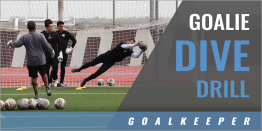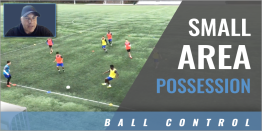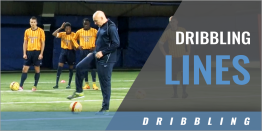|
By: John Klessinger Originally Published in: A Coach's Manual Provided by: Championship Productions "A bad putter is like a bad apple in a barrel. First, it turns your chipping game sour. Then it begins to eat into your irons, and finally, it just cleans the head off your driver." - Sam Snead, Former Professional Golfer, Winner of 82 PGA Tour Events It can be quite easy for one or two people on your team to influence others negatively. A "weed" might be a cruel way to describe these players. However, their negative influence can spread to others like weeds. On every team, you have a core group who are "all in." They are the players that consistently work hard, do what you expect, and have positive attitudes. The next group is the middle ground players. These players may be new to your program, multiple sport athletes, or have yet to make a full commitment to your mission. With time, many of these players will move into or replace the core group members who graduate. Left unchecked, like a weed, these players also can move into the smallest group that negatively influences your program. The last group is your members who, most likely, are not contributors. Often, due to a poor work ethic and attitude, these players haven't progressed and improved like their peers. They may be disgruntled and blame their coaches for their lack of playing time. Furthermore, these are the type of players who make excuses and do not hold themselves responsible for their current situation. If your team is successful, the latter group will be outliers. The core and middle ground group will not be affected. But from experience, if you are struggling, the outlying group can spread and infect other members of your program. The obvious solution is to bring the group of players who negatively influence your team into the middle ground or core group. I will encourage these kids to give more effort and regularly have one-on-one talks about their influence. You may be able to use your leverage to get more buy-in. Younger people are more impressionable than adults. With the right way of communicating with them, you have a legitimate chance of getting them on board. These kids need encouragement, "love" and should be held accountable for their negative influence. As the coach, I would bring attention to their behavior in a subtle manner. I would work on either changing their negative behavior or, at a minimum, containing it so it doesn't spread to others. If these players are bad for your program, then why are they on the team? At the beginning of the season, there is a "honeymoon" phase. The coaches and players are excited and ambitious. The room is full of optimism. As time goes on, the excitement wears off. They may be unsuccessful or unhappy. Like weeds in a garden, one day, they pop up. Every program has a weed or two, some big and some small. If you catch the weeds early, they can be maintained and kept from spreading. The weeds also grow in the least suspecting places. Kids you never would expect become a negative influence on others. It could be for many reasons: playing time, social life, problems at home, and more. The moral of the story - take care of your garden. Be aware of your players' attitude and enthusiasm. When you sense a player is turning into a weed, quickly go into maintenance mode. Talk to them. "Are you ok?" "What's up with you?" "Do you want to talk about it?" Sometimes, all it takes is some encouragement. "Joe, you look good today. Keep it up." |






